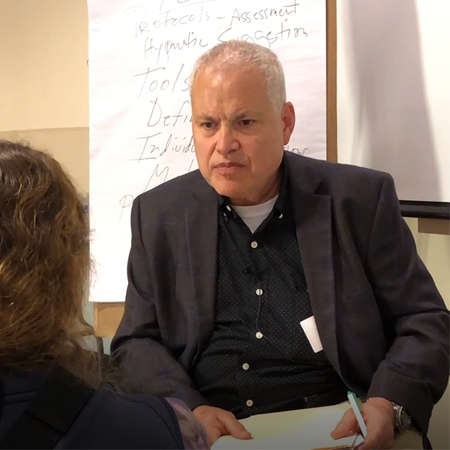One might not consider that Post Traumatic Stress Disorder (PTSD) and chronic pain can be directly correlated with one another. Yet, according to Psychiatric Times, “Many individuals with chronic pain suffer from PTSD due to the incidents that caused trauma-related distress, but chronic pain is also commonly found in individuals with PTSD as their primary disorder. Hence, a better understanding of this comorbidity may be important for the treatment of both disorders.”
According to the studies examined in the full Psychiatric Times article above, there are three potential explanations as to why the two may not only coexist but negatively enhance one another. Here is a breakdown of these potential explanations, and how hypnotherapy can work to alleviate both PTSD and chronic pain for individuals who experience one or both of these life-altering conditions.
One study found “that underlying predisposing factors or traits cause the development of both PTSD and chronic pain. In particular, anxiety sensitivity may amplify the intensity of the initial emotional response to a traumatic event, thereby increasing the risk of developing either condition.” This is referred to as shared vulnerabilities and is one of the potential reasons why PTSD and chronic pain may coexist for someone.
An individual’s sensitivity to pain can also be traced to PTSD as traumatic events may heighten or decrease one’s sensitivity to pain. According to the research, PTSD from combat-related incidents increases a person’s pain threshold, meaning these individuals develop a greater tolerance to sensations of pain. Yet, for those whose PTSD is not combat-related, disassociation can actually increase someone’s bias towards the sensation of pain resulting in a lower threshold for withstanding pain.
The third link, mutual maintenance, refers to the seven means by which PTSD and chronic pain work to negatively enhance one another. Essentially, the researchers uncovered seven different ways an individual may begin to experience “heightened expectations, overestimations, and selective and negative interpretations of both pain-evoking and fear-evoking stimuli… evoking fear and PTSD intrusion and hyperarousal… physical deconditioning, inactivity, disability… limited capacity to employ adaptive coping strategies.”
How Hypnotherapy Can Help
This is a lot for any individual to manage; either disorder is likely to shake one’s ability to move through life, and both may leave someone feeling hopeless. Thankfully, strategically formulated hypnotherapy can address and resolve the underlying conflicts that keep a person from functioning well and getting the most out of life.
As a licensed clinical psychologist, psychotherapist, and hypnotherapist, I can work with you to formulate an individualized program to address your pain and teach you how to tame it. I can help you to safely access your memories, examine and reprocess them, and better understand your feelings about the trauma you carry.
Together, we can begin to reduce the negative impressions fixed in your subconscious by your traumatic experience and help you gain control over and reduce your pain. Relief is possible, and if you have tried other interventions without success, hypnotherapy may be the solution you have been looking for.
For 30 years, I have helped thousands of patients who struggle with PTSD and chronic pain overcome their symptoms and begin to live a life free of the symptoms they experience. If you would like to learn more about my practice or would like to schedule a free consultation appointment, visit us online or call our office today at (561) 377-1039.
Dr. Eimer proudly serves patients in Delray Beach, Boynton Beach, Wellington, Lake Worth, Boca Raton, Deerfield Beach, Fort Lauderdale, Miami, West Palm Beach, and surrounding areas.








